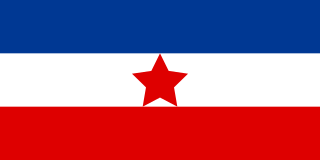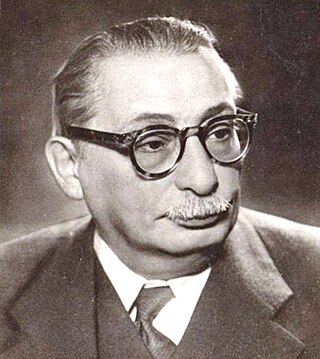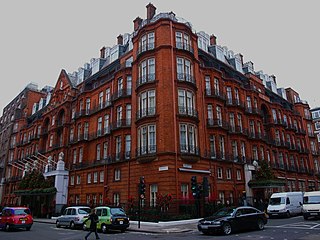The politics of Croatia are defined by a parliamentary, representative democratic republic framework, where the Prime Minister of Croatia is the head of government in a multi-party system. Executive power is exercised by the Government and the President of Croatia. Legislative power is vested in the Croatian Parliament. The Judiciary is independent of the executive and the legislature. The parliament adopted the current Constitution of Croatia on 22 December 1990 and decided to declare independence from Yugoslavia on 25 May 1991. The Constitutional Decision on the Sovereignty and Independence of the Republic of Croatia came into effect on 8 October 1991. The constitution has since been amended several times. The first modern parties in the country developed in the middle of the 19th century, and their agenda and appeal changed, reflecting major social changes, such as the breakup of Austria-Hungary, the Kingdom of Serbs, Croats and Slovenes, dictatorship and social upheavals in the kingdom, World War II, the establishment of Communist rule and the breakup of the SFR Yugoslavia.

Serbia and Montenegro, previously known as the Federal Republic of Yugoslavia, FR Yugoslavia or simply Yugoslavia until 2003, was a country in Southeast Europe located in the Balkans that existed from 1992 to 2006, following the breakup of the Socialist Federal Republic of Yugoslavia. The country bordered Hungary to the north, Romania to the northeast, Bulgaria to the southeast, North Macedonia to the south, Croatia and Bosnia and Herzegovina to the west, and Albania to the southwest. The state was founded on 27 April 1992 as a federation comprising the Republic of Serbia and the Republic of Montenegro. In February 2003, it was transformed from a federal republic to a political union until Montenegro seceded from the union in June 2006, leading to the full independence of both Serbia and Montenegro.
Yugoslav or Yugoslavian may refer to:

Democratic Federal Yugoslavia, also known as Democratic Federative Yugoslavia, was a provisional state established during World War II on 29 November 1943 through the Second Session of the Anti-Fascist Council for the National Liberation of Yugoslavia (AVNOJ). The National Committee for the Liberation of Yugoslavia (NKOJ) was its original executive body. Throughout its existence it was governed by Marshal Josip Broz Tito as prime minister.

The prime minister of Croatia, officially the president of the government of the Republic of Croatia, is Croatia's head of government, and is de facto the most powerful and influential state officeholder in the Croatian system of government. Following the first-time establishment of the office in 1945, the 1990–2000 semi-presidential period is the only exception where the president of Croatia held de facto executive authority. In the formal Croatian order of precedence, however, the position of prime minister is the third highest state office, after the president of the Republic and the speaker of the Parliament.

Miroljub Labus is a Serbian economist and former politician. He is currently a University of Belgrade professor, lecturing political economy at the University of Belgrade Faculty of Law. He is also the owner of consulting firm Belox Advisory Service.
The Government of Croatia, formally the Government of the Republic of Croatia, commonly abbreviated to Croatian Government, is the main executive branch of government in Croatia. It is led by the president of the Government, informally abbreviated to premier or prime minister. The prime minister is nominated by the president of the Republic from among those candidates who enjoy majority support in the Croatian Parliament; the candidate is then chosen by the Parliament. There are 20 other government members, serving as deputy prime ministers, government ministers or both; they are chosen by the prime minister and confirmed by the Parliament (Sabor). The Government of the Republic of Croatia exercises its executive powers in conformity with the Croatian Constitution and legislation enacted by the Croatian Parliament. The current government is led by Prime Minister Andrej Plenković.

Moša Pijade, nicknamed Čiča Janko, was a Serbian and Yugoslav communist, a close collaborator of Josip Broz Tito, Yugoslav politician, and full member of the Serbian Academy of Sciences and Arts.

The Banovina of Croatia or Banate of Croatia was an administrative subdivision (banovina) of the Kingdom of Yugoslavia between 1939 and 1941. It was formed by a merger of Sava and Littoral banovinas into a single autonomous entity, with small parts of the Drina, Zeta, Vrbas and Danube banovinas also included. Its capital was Zagreb and it included most of present-day Croatia along with portions of Bosnia and Herzegovina and Serbia. Its sole Ban during this period was Ivan Šubašić.

The Politics of Serbia are defined by a unitary parliamentary framework that is defined by the Constitution of Serbia in which the president, currently Aleksandar Vučić, is the head of state while the prime minister, currently Ana Brnabić, is the head of government. Executive power is exercised by the Serbian government and the President of Serbia. Legislative power is vested in the unicameral National Assembly which is composed of 250 proportionally elected deputies. The judiciary is independent and is headed by the Supreme Court of Cassation, which is also the highest court in Serbia.

The Parliament of Montenegro is the unicameral legislature of Montenegro. The Parliament currently has 81 members, with each member elected to a four-year term. Following the 2006 independence referendum, the Parliament declared and ratified the independence of Montenegro on 3 June 2006. Members of the Parliament are elected using proportional representation.

The prime minister of Yugoslavia was the head of government of the Yugoslav state, from the creation of the Kingdom of Serbs, Croats and Slovenes in 1918 until the breakup of the Socialist Federal Republic of Yugoslavia in 1992.

Nikola Šainović is a Serbian politician. A close associate of Slobodan Milošević, he held several important state functions of Serbia and FR Yugoslavia during the 1990s. He has been a member of the Socialist Party of Serbia since the party's foundation.

The prime minister of Serbia and Montenegro was the head of government of Serbia and Montenegro from its establishment in 1992 up until the state's dissolution in 2006. Between 1992–2003 the full name of the office was President of the Federal Government of the Federal Republic of Yugoslavia, while after the constitutional reforms of 2003 the title was Chairman of the Council of Ministers of Serbia and Montenegro. The office was merged in 2003 with the head of state, providing for one person to hold both the office of President of Serbia and Montenegro and Chairman of the Council of Ministers of Serbia and Montenegro.

Portuguese-Serbian relations date back to 1882. Portugal has an embassy in Belgrade, and Serbia has an embassy in Lisbon. Despite support by Portugal for the independence of Kosovo, Serbian Prime Minister Mirko Cvetković was keen to improve bilateral cooperation. Also, Portugal is backing Serbia's accession to the European Union (EU).

Through the history of Yugoslavia, the defence ministry which was responsible for defence of the country was known under several different names. The Ministry of the Army and Navy was responsible for defence of the Kingdom of Yugoslavia from 1918 to 1941, the Federal Secretariat of People's Defence for the Socialist Federal Republic of Yugoslavia from 1945 to 1992 and the Ministry of Defence for Serbia and Montenegro from 1992 to 2006.

The Ministry of Foreign Affairs of Yugoslavia was the ministry responsible for representing the Kingdom of Yugoslavia internationally from 1918 to 1941 and the Socialist Federal Republic of Yugoslavia from 1945 to 1992. It may also refer to the ministry which represented Serbia and Montenegro from 1992 to 2006.

The Chief of the General Staff of Yugoslavia refers of the chief of the General Staff of the Royal Yugoslav Army from 1918 to 1941, the Yugoslav People's Army from 1945 to 1992 and the Armed Forces of Serbia and Montenegro from 1992 to 2006.

The Government of the Kingdom of Yugoslavia in Exile was an official government-in-exile of Yugoslavia, headed by King Peter II. It evacuated from Belgrade in April 1941, after the Axis invasion of the country, and went first to Greece, then to Palestine, then to Egypt, and finally, in June 1941, to the United Kingdom. Hence, it is also referred to as the "Government in London".













































